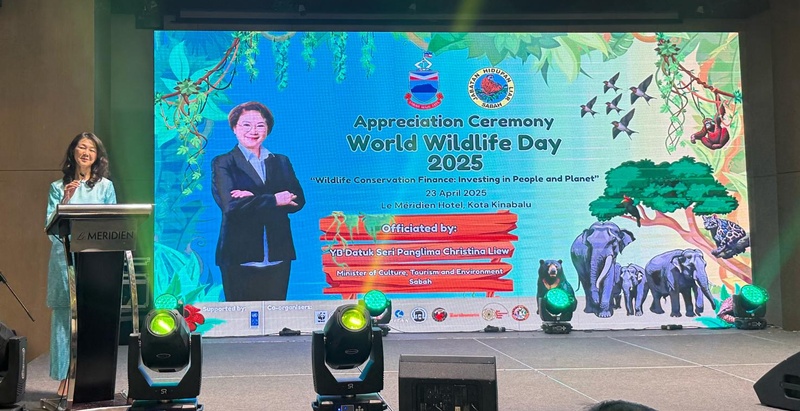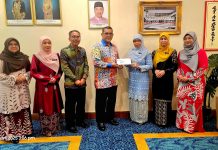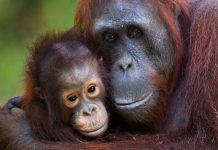KOTA KINABALU: In a heartfelt address that resonated deeply with the assembled audience—comprising representatives from government agencies, NGOs, corporate partners, the media, educators, researchers, and local communities—Minister of Tourism, Culture and Environment Datuk Seri Panglima Christina Liew thanked them for their tireless efforts in preserving Sabah’s remarkable wildlife.
She specifically recognised those on the front lines: rangers, wardens, Wildlife Junior Rangers, and local champions who devote their lives to conservation. In her speech, read by the Ministry’s permanent secretary Datuk Josie Lai during the appreciation ceremony in conjunction with World Wildlife Day, she stated that the spotlight was not only on the beauty of Sabah’s flora and fauna but also on the significant efforts and sacrifices made to protect them. Liew emphasised that the work of these dedicated individuals is essential—not just for the environment, but also for the cultural and economic fabric of Sabah.
This includes strategies for the Bornean elephant, banteng, proboscis monkey, orangutan, clouded leopard, and the recently introduced Bornean sun bear action plan, alongside a comprehensive Action Plan for Combating Wildlife Crime in Sabah. “These action plans, described as blueprints for coordinated efforts, are not merely theoretical; they demand engagement and proactive responses,” she said, adding that stakeholders need to familiarise themselves with these documents, reflecting on their strategies and taking affirmative steps forward. The plans outline necessary actions, required resources, essential partnerships, identified knowledge gaps, and capacity-building initiatives.
“A recent evaluation of the Bornean Elephant Action Plan after five years of implementation illustrated both successes and ongoing challenges. Despite many achievements, issues such as human-elephant conflict remain pervasive, particularly within and around protected areas.” Tackling these challenges will necessitate robust habitat management, effective land-use planning, and sincere collaboration with local communities and plantation stakeholders. She added that this is not limited to elephants; expectations for other species-specific action plans foresee similar challenges.
“Wildlife conservation is an ever-evolving field. As threats to biodiversity develop, so too must our strategies. This necessitates the adoption of new technologies, updated methods, and proactive measures against illegal activities that jeopardise our wildlife.”
Wildlife conservation cannot be viewed in isolation. It is a collective endeavour that requires unity and a shared purpose among all stakeholders. She underscored the importance of recognising the contributions of those present, as genuine progress depends on collaborative efforts across various sectors.
Moreover, the preservation of wildlife transcends environmental concerns; it significantly supports tourism, a key component of Sabah’s economy. Iconic species, including the orangutan, Bornean elephant, proboscis monkey, and slipper orchids, are not only symbols of Sabah’s natural wealth but are integral to its status as an international destination.
However, a realistic approach to conservation is vital. “Protecting what we hold dear necessitates investment. Sustainable financing has become critical for the future of conservation in Sabah—a reality that demands a departure from traditional funding sources. Innovative mechanisms, such as tourism tax allocations, ecosystem services payments, and public-private partnerships, must be explored to bolster both the Sabah Wildlife Department’s initiatives and community-based efforts.”
The Ministry expressed its commitment to further investigate these opportunities alongside conservation partners, ensuring that action plans are not mere aspirations but actionable, impactful, and sustainable.
She thanked the attendees for their presence that evening—an indication of more than just support, but a collective pledge to defend wildlife, ecosystems, and our shared future. The call to action concluded with a reminder to invest in both people and planet, ensuring that Sabah’s natural treasures can be enjoyed by generations to come.-pr/BNN






